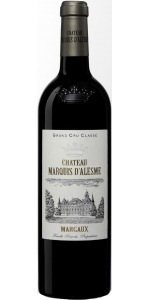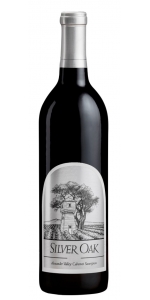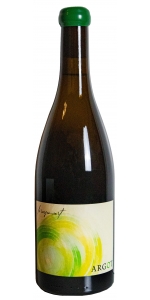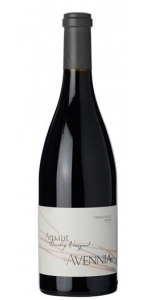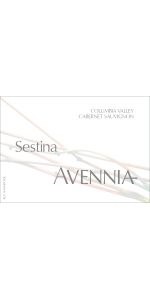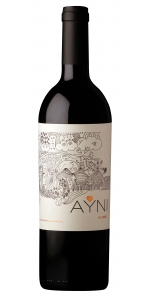Cantenac-Brown Margaux 2020
2 bottles with free shipping for: $180.00
6 bottles with free shipping for: $570.00
| BUY MORE! SAVE MORE! | ||||||||||||||||||||
|
| Country: | France |
| Region: | Bordeaux |
| Winery: | Cantenac Brown |
| Grape Type: | Cabernet Sauvignon |
| Vintage: | 2020 |
| Bottle Size: | 750 ml |
A new wine for the new century: BriO de Cantenac Brown was born in 2001.
Through the style of its label, but also through the quality of our work from the selection of the lots to the bottling, it aims at expressing the modernity of our Château.
The lots supposed to be the main part of BriO are pre-selected because of their evolution all through the year, which means that we focus on each different lot of the winery, from the budburst through the flowering to the ripeness control.
A meticulous attention
The lots for BriO often need more work: more leaf pruning, some green harvest, for example on the young vines, to help them to deal with the weather conditions.
Our two labels are made from vines located on a beautiful terroir where you find gravelly soils, and we want the vinification of BriO to lead to an elegant wine with lots of flavours, a compromise between strength and finesse.
So, if you like the fruits, you can start to drink it from 2 to 5 years after the harvest.
The blend between Cabernet Sauvignon, Cabernet Franc and Merlot is different for each vintage but the Merlot percentage is usually more important than the one in the Château Cantenac Brown.
The 12 months-long ageing in 20% to 25% new oak barrels is traditional; we rack it every 3 months. Before the bottling, we do the fining with egg whites.
It is on purpose if the bottles of BriO are different from the ones of Cantenac Brown: we want BriO to become a brand on its own, and it’s true that we talk much more about “BriO” than about “BriO de Cantenac Brown”.
We want BriO to be a wine you drink before, during and after a meal; just for your pleasure.
Cantenac Brown Estate
Grand Cru Classé in 1855
At the beginning of the 19th century, John-Lewis Brown (1769-1851), bought a vineyard and designed in the village of Cantenac, a traditional Tudor style château, reminding him of his Scottish origins. His name is forever linked to the Grand Cru Classé. His grandson, John-Lewis Brown (1829-1890) esteemed animal painter and “Chevalier de la Légion d’Honneur”, spent time there during his childhood.
In 1843, Mr. Gromard, banker, took over the estate. After the 1855 Grand Cru Classification, Louis Armand Lalande (1820-1894), Bordeaux winemerchant and owner of several estates in Médoc, extended the building. Surrounded by a remarkable British style park, Château Cantenac Brown is since then among the most original in Médoc.
In 2006, the Simon Halabi family has given new impetus to the estate with the ambition of raising it to the highest echelons.
José Sanfins presently manages Château Cantenac-Brown. He does his utmost to make the best of the magnificent terroir, lavishing the greatest of care on the soil and the vines, with great respect for the environment.
This meticulous attention to detail continues into the cellar, where everything possible is done to produce an exceptional wine.
John-Lewis Brown (1769-1851) acquired the estate in the early 19th century and decided to build in the village of Cantenac, a Tudor style chateau reminiscent of his Scottish origins.
The building is one of the most unusual in Médoc region and is surrounded by a remarkable English-style ground.
The quality of the wine was acknowledged in the 1855 classification, when Château Cantenac Brown was included into the growths.
The Bordeaux winemerchant and owner of several estates in Médoc, Louis Armande Lalande (1820-1894), extended the building, keeping the same architecture.
One hundred fifty years later, the Simon Halabi family has given a new impetus to this estate with a British atmosphere
…which they are determined to raise to the very highest level.
José Sanfins presently manages Château Cantenac-Brown. He does his utmost to make the best of the magnificent terroir, lavishing the greatest of care on the soil and the vines, with great respect for the environment. This meticulous attention to detail continues into the cellar, where everything possible is done to produce an exceptional wine.
Cantenac Brown Vineyards
With José Sanfins in charge, methods have changed.
The vineyard is managed in a more environmentally friendly way: the “sustainable approach” goes without saying.
The vines are cared for throughout the year and yields are perfectly controlled.
Strictly plant-based fertilizers are applied in a moderately and balanced way in tune with the needs of the vines.
This respect for Nature explains why the Château Cantenac Brown team continues to use the traditional soil maintenance techniques, which gradually enhance the structural, chemical and biological properties of the earth.
“A perfect match between Men and Nature…”
Over 400 000 vinestocks are managed every year. Pruning, removal of buds, leaves and secondary shoots, hand harvest …, several times per year the whole team works vine by vine and checks each single cluster.
Such a sharp selection does not replace the environment. The finest wines are given by the Nature.
Marquis d'Alesme Margaux is made from 63% Cabernet Sauvignon, 30% Merlot, 5% Petit Verdot and 2% Cabernet Franc.
Silver Oak Alexander Valley Cabernet Sauvignon is made from 95.2% Cabernet Sauvignon, 2.5% Cabernet Franc, 1.9% Merlot, 0.4% Petit Verdot
The Silver Oak Alexander Valley Cabernet Sauvignon 2019 has notes of red cherry, raspberry, blackberry, iris, vanilla and clove. Ruby in color, this elegant wine has great acidity and lift on the mid-palate. Black currant and warm baking spices linger with a deep and fruity finish. It will provide drinking pleasure through 2047 given proper cellaring.
Review:
Plush and sexy, Silver Oak’s dazzling 2020 Alexander Valley Cabernet Sauvignon delivers succulent dark fruit offset by black olive-like nuances. Polished and suave tannins provide support without being intrusive or distracting, allowing for immediate enjoyment with a steak. Good acidity keeps it bright and you coming back for another sip.---- Michael Apstein
- Wine Review Online 93 Points
Argot Le Rayon Vert Chardonnay is made from 100 percent Chardonnay.
"Le Rayon Vert", the phenomenon which occurs as the sun dips below the horizon, and a brilliant green flash occurs when sunlight prisms through Earth's atmosphere. Jules Verne wrote "a green which no artist could ever obtain on his palette”, akin to the ethereal, green halo all truly pedigreed Chardonnays radiate from the glass.
Wafting from the glass like a freshly opened stick of Wrigley's gum. Both intense and vibrant, the full-bodied palate delivers Granny Smith apple and stone fruits; confections of custard and sticky vanilla bean; animated by bursts of spearmint and pine forest.
Review:
The 2020 Le Rayon-Vert comes bounding out of the glass with bold notions of lemon meringue pie, fresh apricots, and sea spray, giving way to nuances of struck flint, wet pebbles, and Marcona almonds, plus wafts of lime leaves and mandarin peel. The medium to full-bodied is simply electric, delivering super-intense citrus and mineral layers with a crisp backbone and a very long, chalky finish.
-The Wine Independent 96 Points
Avennia Arnaut Syrah is made of 100% Syrah
For our taste, no one grows finer Syrah in the state than Dick Boushey. We named this wine after the Provencal Troubadour Arnaut Daniel, who invented the Sestina poem form, thus creating a connection between our two flagship efforts.
"Deep, dark Syrah notes on the nose, with dark blackberry, blueberry reduction, grilled meat, crushed olive, black licorice, camphor, pen ink, and cracked black pepper. The palate is super concentrated and dense, tightly focused, and deeply complex. Savory blueberry, pan drippings, a hint of orange essence, and hand-rubbed sage come through on the extremely long and nuanced finish. A compelling wine that will age for a couple decades at least." - Chris Peterson, Winemaker
We make this wine with minimal manipulation, using native yeasts and bottling unfined and unfiltered, to allow the "place" to shine through.
AVA: Yakima Valley
Blend: 100% Boushey Vineyard Syrah
Winemaking: 15% whole cluster, native yeast, 15% new French oak, aged 16 months, bottled unfined & unfiltered.
Review:
"Boushey Vineyard is holy ground for Syrah in Washington. This is yet another wine that will inspire a vinous pilgrimage. Dried herb, smoked meat, iron, and dark fruit aromas lead to full-bodied, saturated, palate-staining dark fruit flavors. The intensity is off the charts – earthshaking, with wave upon wave of dark fruit flavors. There’s plenty of structure around it all. It sticks around for a long, slightly warm finish. Best enjoyed at a cool 62 degrees. Give it a long decant if drinking in the near term." - Sean P. Sullivan
95 points & Critic's Choice, Northwest Wine Report
All varietal from a great vineyard in the Yakima Valley, the 2020 Syrah Arnaut Boushey Vineyard offers a perfumed, complex nose of mulled red and black berries, peppery, savory herbs, and some meaty, iron-like nuances. This complex, medium to full-bodied beauty has fine tannins, a layered, elegant mouthfeel, and a gorgeous finish.
- Jeb Dunnuck, 94 pts.
Avennia Sestina Red Blend is made from 77% Cabernet Sauvignon, 17% Merlot, 6% Cabernet Franc.
The Sestina is a poetic form from Medieval France. Just as a contemporary poet can use an old form like the Sestina to express modern ideas, we use the traditional Bordeaux blend to make modern wines that express Washington fruit. Sestina is our vision for an old vine blend where the focus is on structure, balance, and complexity. This wine is designed for the cellar, but is enjoyable now.
Sestina: This wine is a blockbuster, with black currant, black raspberry, saddle leather, freshly tilled earth, vanilla, and violet on the nose. Exceedingly rich and balanced on the palate, with great poise and structure for long aging. The finish echoes with fresh black fruits, minerally touches, and floral notes.
Review:
The 2020 Sestina showed beautifully, with lots of ripe black fruits, tobacco, and spring flower notes in a medium to full-bodied, fresh, focused, elegant style. It has fine tannins and a great finish and should drink nicely right out of the gate. The tannins here are terrific.
Jeb Dunnuck 94-96 Points
Ayni Malbec Paraje Altamira is made from 100 percent Malbec.
Ayni is the Quechua term for the principle of reciprocity, practiced for centuries by the Andean people - "in order to receive, you first have to give." Chakana's renowned Paraje Altamira vineyard, which sits 3,300 feet above sea level, bears the name Ayni & is the source of the Ayni wines.
Deep ruby-red in color with violet hints. Complex and intense bouquet, featuring blackberries, cherries and plums, with delicate floral notes and spices. Balanced and fresh; full-bodied with good length of spices.
Pairs well with grilled meats and stews.
Review:
-Jeb Dunnuck 95 Points
- back
Elvio Cogno Pre-Phylloxera Barbera d'Alba is made from 100 percent Barbera.
Produced from one of the last archaic vines of the Langhe area, an open air museum of viticulture from a time gone by, the plants are over one hundred years old. The vines are not grafted but propagated through cuttings, thus maintaining, over the decades, the original Barbera characteristics.
The vineyard has an excellent exposure and sandy-chalky terrain, situated in Berri near La Morra, which guaranteed the vines a natural protection from Phylloxera and imparts unique and exclusive characteristics to the vines. The intriguing simplicity of the vines and their typical, traditional charm that derives from the microclimate and favorable altitude make a one of-a-kind wine.
The low production per hectare guarantees an intensely rare and rich organoleptic concentration. The wine is refined in oak casks that slowly develop the primary aromas. Pleasant and refined, complex even as a young wine but able to withstand bottle aging, it expresses its solid uniqueness even over the years.
A bright, rich ruby color with intense purplish highlights. The aroma is enveloping, aromatic and deep with noticeable spices on first impression and raspberry, strawberry and ripe cherry notes in background. Finish with pleasant harmonies of wild flowers. On the palate it is well structured, fresh and the acidity is excellently balanced, the tannins texture is embracing and flavors remind you of sour cherries, blackberries and prunes.
Review:
Planted in almost entirely sand, this own-rooted vineyard with some vines over 120 years old is a singular expression of Barbera. Elegant aromas of wild rose and fresh bay leaf mixed with cranberry, sour cherry and underbrush are just some of the notes you will discover in this complex wine. The palate is refined and well-balanced with fresh youthful red fruits, fresh flowers and fine tannins driving the wine home. Drink Now–2035.
-Wine Enthusiast 95 Points
Orin Swift 'Slander' Pinot Noir is made from 100 percent Pinot Noir.
Staying humble and letting the grapes do the talking is how we get better at winemaking every vintage. Pinot Noir requires even more humility, especially in the vineyards – when the grapes are ready, they’re ready. Requiring a gentler approach with punchdowns rather than pumpovers, Pinot Noir expresses itself when it is lead manipulated. Slander is the union of California Pinot Noir made in the Orin Swift signature style delivering a bold and expressive wine.
There are several fantastic growing regions in California bes t suited to Pinot Noir—from down in Santa Barbara County to up north in the Anderson Valley to everywhere in between. We’ve been fortunate to source Pinot Noir from across the state in many of these ideal locales for years . Finnick y, sensitive and with lots of personality, the varietal requires a long growing season and relatively mild weather to ripen and develop its beautiful flavors , all while retaining its brightness . Sourced from the Rancho Real, Annapolis, Del Rio, Laguna and a few other vineyards, this vintage of Slander is an example of the sum being greater than its parts. WINEMAKER’S NOT
The 2022 Slander delivers a medium ruby core with a lucid rim that-s almost translucent. Aromatically, Bing cherry, briar fruit and some raspberry give way to ripe strawberry and associated red fruits. Bright and enveloping on the entry, notes of fresh strawberry, watermelon, thyme and a hint of funk come through. Spicy on the finish, the wine closes with a flash of blue fruits and lift.


